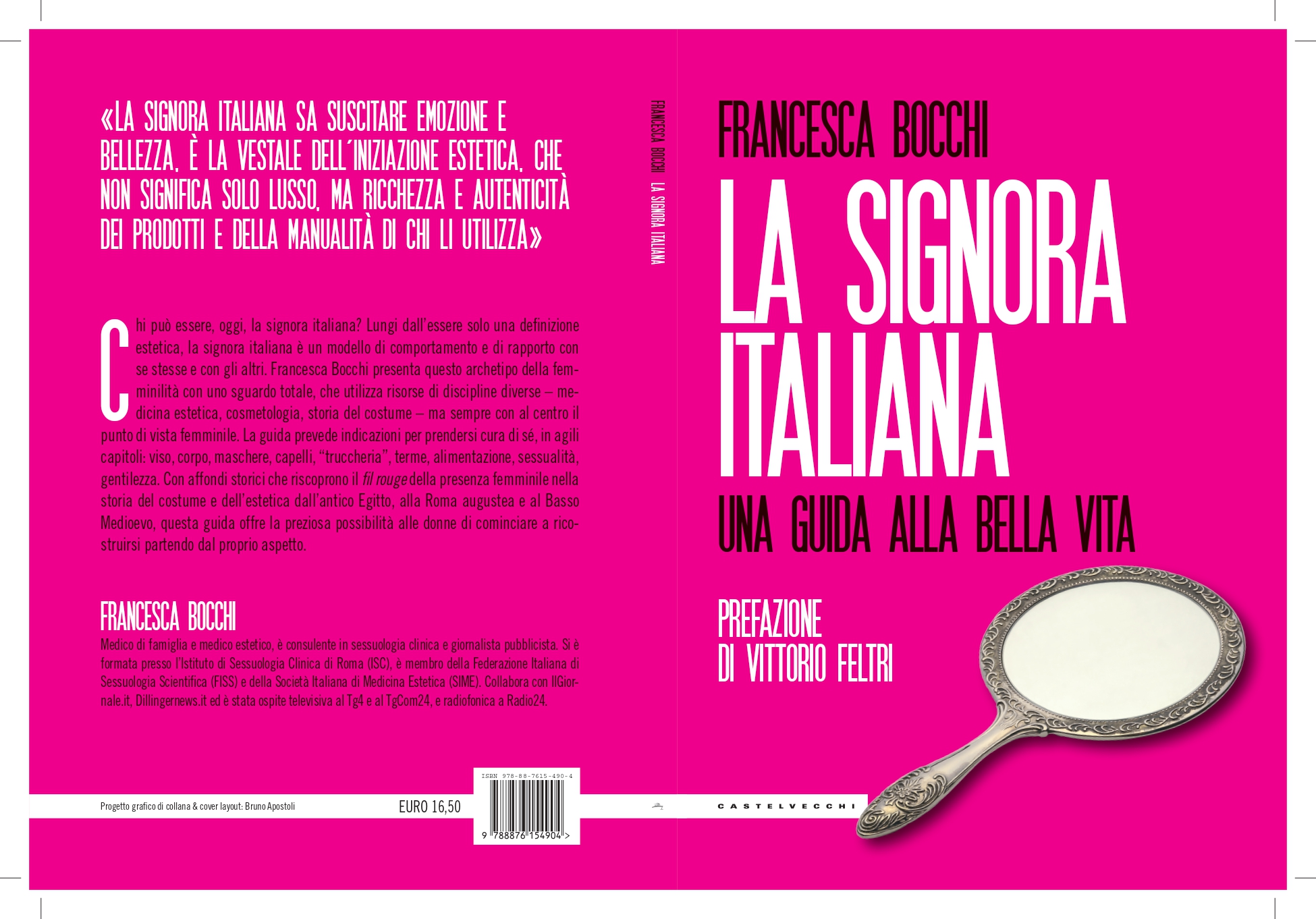The sophisticated book La Signora Italiana (Castelvecchi Editions) is dedicated to the women of Italy. They embody the charm, style, and beauty that have always distinguished Italy, the timeless capital of fashion, design, and art.
This is a book that takes care of the body but aims for the soul. The author firmly believes that the Italian woman is admired for her style, beauty, and grace—qualities that stem from self-esteem. To love others, one must first love oneself. And to be free, it’s necessary to appreciate and value oneself—both in mind and body. This text is a “guide to the good life” written by a family doctor and aesthetic medicine specialist: part handbook, part clinical essay, with one eye on Ovid’s Ars Amatoria and one ear tuned to Aristotle. It’s an invaluable book for women of all ages—and even for men, who might read it to better understand the aesthetic and moral beauty of the female universe.
The author skillfully blends history and medicine, cosmetics and culture. She offers her readers a highly informative guide to techniques, products, oils, creams, surgery, and exercises—elements that might seem exclusive to a few, but are in fact accessible to any woman who loves knowledge and self-care.
And if Aristotle once said that beauty is the best letter of recommendation, it’s worth noting that the author never falls into clichés—even when dealing with a topic that today can be delicate and explosive. What readers hold in their hands is a genuine guide to self-care, delivered through twelve concise chapters that cover: the face, body, skin, masks, makeup, fragrances, spas, fabrics and textiles, nutrition and health, love and sex, and, finally, kindness. And when you put together all these “little things,” what do you get, if not everyday life, with its desires, needs, expressions, and freedoms?
Francesca Bocchi argues that “kindness is a lifestyle,” just as beauty should never be shouted, but rather “a pleasant form to our eyes and to the eyes of others.”
And what if this typically Italian kindness is a way of being that allows one to have a more positive self-image and to create an energy so powerful that once experienced, you’ll never want to let it go? Perhaps, in this context, we can say that yes—kindness rhymes with beauty. And vice versa.
The book begins by exploring the origins of Italian women’s self-care, with “God’s Pharmacy,” referencing the founders of medical tradition—Hippocrates and Galen—and citing philosophers, historical sources, and ancient cultures. But it goes further: there’s meticulous research on ingredients and cosmetic products, often lesser-known Made in Italy gems, but essential for finding the right one and “planning an authentic daily home treatment, carried out with ritual precision.”
Because, as we know, this concept of beauty requires consistency and attention to oneself—first and foremost as an act of self-respect, even before seeking aesthetic and psychophysical wellbeing. It becomes a synthesis and union of intent and result.
Caring for one’s appearance has long been a refined and ancient prerogative of Italian women. Facial treatments begin with an analysis of various biotypes, which guides the choice of cosmetic and aesthetic medicine protocols and natural remedies tailored to different skin types. The approach to voltology is particularly interesting—a method to understand a person through interpreting the shape and features of the face and body. The book then offers an overview of body therapies and the many beauty rituals (cleansing, hydration, toning). There’s also an entire chapter on hair, makeup, and the magical world of perfumes.
And then, of course, Italy’s wellness destinations: the countless spas throughout the country, often built around natural hot springs.
Beauty is also explored in relation to the fabrics we wear, to nutrition (with a guide to “good” restaurants)—because health and aesthetics are deeply connected. “Adopting a balanced diet, rich in antioxidants, will slow down skin aging,” says the author.
The book doesn’t skimp on shopping advice—strictly Made in Italy—and explores sexuality, presenting this vital aspect of an Italian woman’s life as key to living fully and irresistibly.
In short, the Italian lady is Aphrodite: a woman who esteems herself, who is confident, who doesn’t hide, who knows she is attractive, who understands seduction, and who knows that to be free, she must actively cultivate her feminine existence. The Italian lady knows she can be a masterpiece in the world.

